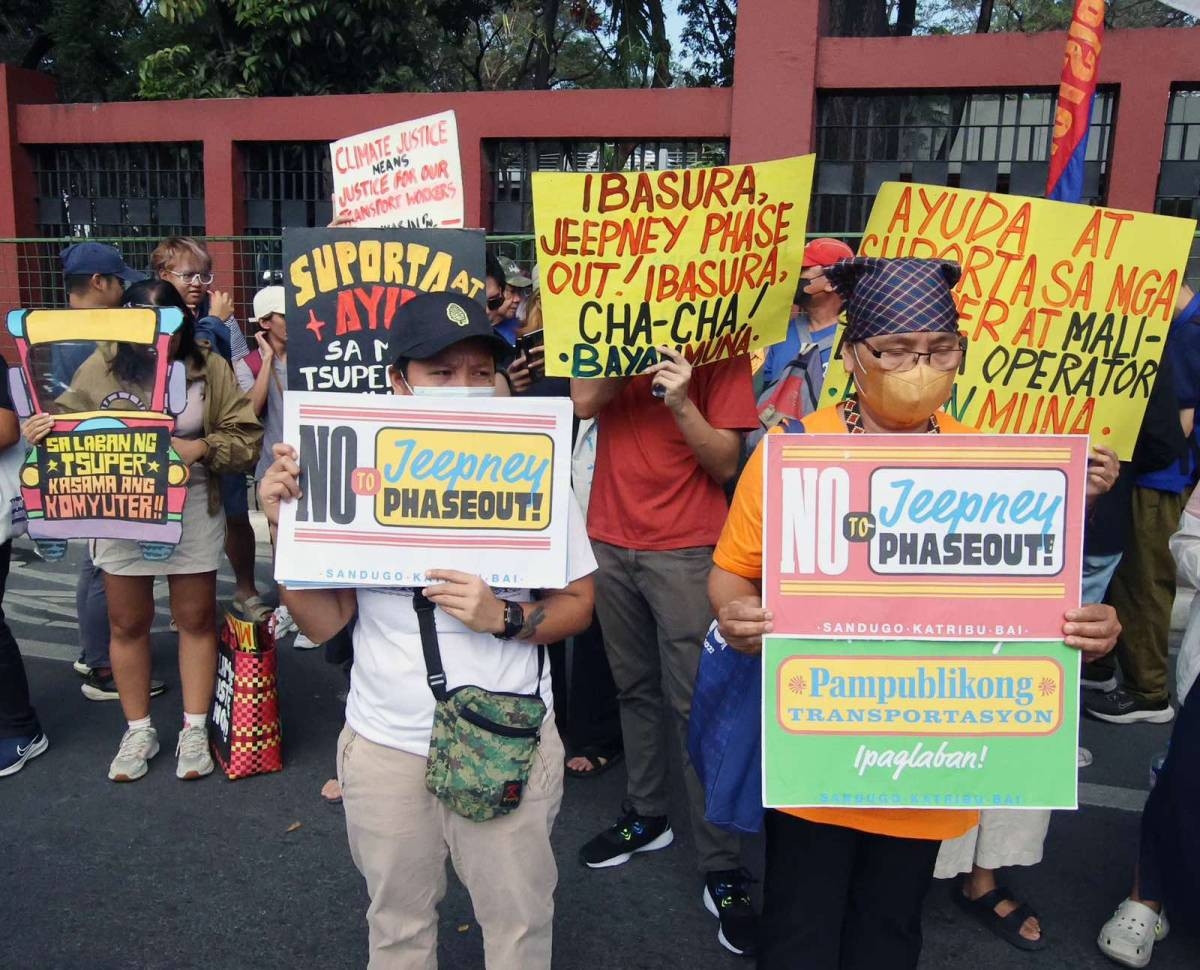MANILA, Philippines: The ongoing conflict between President Ferdinand Marcos Jr. and his predecessor, Rodrigo Duterte, has raised concerns within the transportation sector, according to transport group Pagkakaisa ng mga Samahan ng Tsuper at Operator Nationwide (Piston).
Piston emphasized that it is crucial for the public to pay attention to this conflict, as both leaders bear responsibility for the problems plaguing the transportation sector. In a statement released on Wednesday, Piston highlighted Duterte’s role in initiating the controversial Public Utility Vehicle (PUV) Modernization Program (PUVMP), while criticizing Marcos for his apparent disregard for the transport sector amidst ongoing strikes against the program.
“The open display of trash talking by the two former allies exposes their true intentions, which prioritize their political ambitions over the genuine issues faced by Filipinos,” Piston stated in a Filipino-language statement. “It is evident that both factions are vying for power, representing the ruling class in the country.”
Piston urged the Filipino population not to be deceived by the tactics employed by the ruling class and those in government. The organization emphasized the need for a comprehensive and sustainable solution to the transportation challenges faced by the public.
Originally, the deadline for PUV consolidation under the PUVMP was set for today, January 31. However, it has now been extended to April 30, allowing for more time to address the concerns and issues raised by various stakeholders.
The PUVMP, initiated by Duterte, aims to modernize the public transportation system in the Philippines. It involves the replacement of old, dilapidated jeepneys with more environmentally-friendly and efficient vehicles. The program also seeks to enhance the overall safety and comfort of commuters.
While the intentions behind the PUVMP are commendable, its implementation has faced significant backlash from transport groups, including Piston. These groups argue that the program places an undue burden on drivers and operators, who are already struggling to make ends meet. The cost of transitioning to the new vehicles, coupled with the potential loss of livelihood for many, has fueled the ongoing strikes and protests.
In the midst of this conflict, the Filipino public finds itself caught between two political figures with their own agendas. Duterte, as the initiator of the PUVMP, is determined to leave a lasting legacy through the modernization of the transportation sector. On the other hand, Marcos, with his apparent indifference towards the transport sector, appears more focused on consolidating his own power.
It is essential for the Filipino population to recognize the underlying motivations driving this conflict. By doing so, they can make informed decisions and demand accountability from their leaders. The transportation sector plays a vital role in the daily lives of Filipinos, and any decisions made regarding its future should prioritize the well-being and interests of the public.
As the deadline for PUV consolidation under the PUVMP has been extended, it is an opportunity for the government to engage in meaningful dialogue with transport groups and other stakeholders. A collaborative approach that takes into account the concerns of all parties involved is crucial to finding a sustainable solution that benefits both the public and the transport sector.
In conclusion, the conflict between President Ferdinand Marcos Jr. and Rodrigo Duterte has hindered progress in the transportation sector. It is imperative for the Filipino population to remain vigilant and demand accountability from their leaders. By working together and prioritizing the interests of the public, a resolution can be reached that ensures a modern, efficient, and inclusive transportation system for all.







